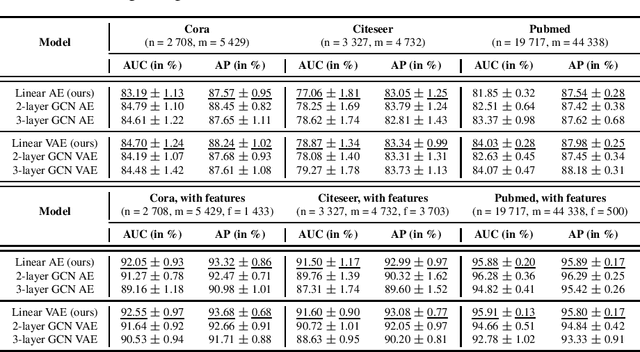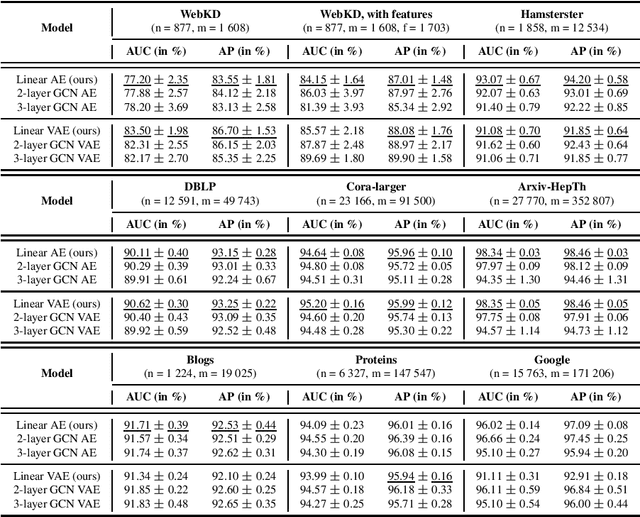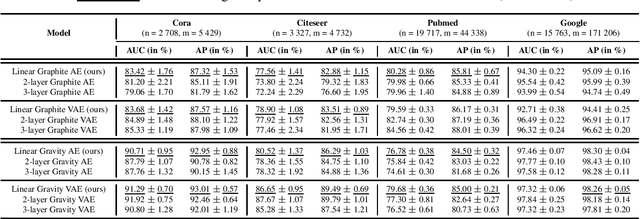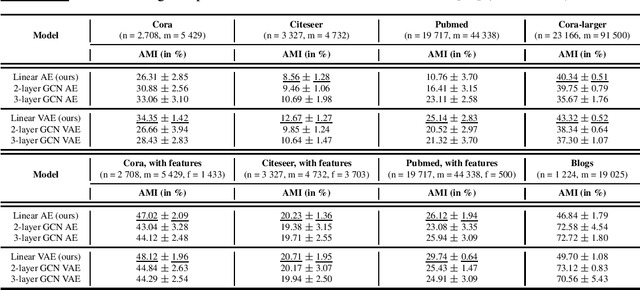Keep It Simple: Graph Autoencoders Without Graph Convolutional Networks
Paper and Code
Oct 02, 2019



Graph autoencoders (AE) and variational autoencoders (VAE) recently emerged as powerful node embedding methods, with promising performances on challenging tasks such as link prediction and node clustering. Graph AE, VAE and most of their extensions rely on graph convolutional networks (GCN) to learn vector space representations of nodes. In this paper, we propose to replace the GCN encoder by a simple linear model w.r.t. the adjacency matrix of the graph. For the two aforementioned tasks, we empirically show that this approach consistently reaches competitive performances w.r.t. GCN-based models for numerous real-world graphs, including the widely used Cora, Citeseer and Pubmed citation networks that became the de facto benchmark datasets for evaluating graph AE and VAE. This result questions the relevance of repeatedly using these three datasets to compare complex graph AE and VAE models. It also emphasizes the effectiveness of simple node encoding schemes for many real-world applications.
 Add to Chrome
Add to Chrome Add to Firefox
Add to Firefox Add to Edge
Add to Edge